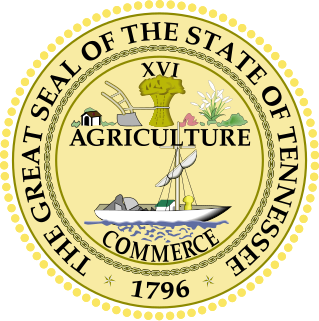
The 1794 and 1795 United States House of Representatives elections were held on various dates in each state between August 25, 1794, and September 5, 1795 (Kentucky). The election was held during President George Washington's second term.

A special election was held in Delaware's at-large congressional district on October 1, 1822 to fill a vacancy left by the resignation of Caesar A. Rodney (DR) on January 24, 1822, having been elected to the Senate. This election was held on the same day as the general elections for Congress in Delaware.

On August 2, 1813, at the end of the 1st session of the 13th Congress, Egbert Benson (F) of New York's 2nd district resigned. A special election was held for his replacement December 28–30, 1813

In December 1816, a special election was held in Georgia's at-large district to fill a vacancy left by the resignation of Alfred Cuthbert (DR) on November 9. Cuthbert himself had been elected in a special election in 1813.

On March 12, 1815, a few days after the legal start of the 14th Congress, but long before the first meeting of that Congress, David Bard (DR), who'd been re-elected to the 9th district, died. A special election was held on October 10 to fill the vacancy left by his death.

On June 4, 1816, after being defeated for re-election, Enos T. Throop (DR) of New York's 20th district resigned his seat. A special election was held in September of that year to fill the vacancy left for the remainder of the 14th Congress

In April 1816, James Clark (DR), of Kentucky's 1st district, resigned his seat to accept a position as circuit court judge. A special election was held for his replacement.

On December 15, 1815, having been elected to the Senate, Nathaniel Macon (DR) of North Carolina's 6th district resigned. To fill the vacancy left in North Carolina's representation for the 14th Congress, a special election was held on January 22, 1816.

On April 16, 1816, Richard Stanford (DR) of North Carolina's 8th district died in office. A special election was held to fill the resulting vacancy

In April, 1816, John McLean (DR) of Ohio's 1st district resigned. A special election was called to fill the resulting vacancy.

On September 24, 1815, John Sevier (DR), representative for Tennessee's 2nd district, died in office. A special election was held to fill the resulting vacancy December 7–8, 1815.

On July 4, 1816, Representative Thomas Gholson, Jr. (DR) of Virginia's 18th district died in office. A special election was held to fill the resulting vacancy on October 10, 21–23, and 28, 1816.

In the 1816 elections in Pennsylvania, David Scott (DR) won one of the two seats in the 10th district, but resigned before the 15th Congress began, having been appointed judge of the court of common pleas. A special election was held on October 14, 1817 to fill the resulting vacancy.

On September 16, 1816, Representative-elect Henry B. Lee (DR) of New York's 4th district died before the start of the 15th Congress, to which he'd been elected. A special election was held prior to the beginning of the first session of Congress to fill the resulting vacancy.

On December 20, 1820, Jesse Slocumb (DR) of North Carolina's 4th district died. A special election was held to fill the resulting vacancy

On May 15, 1820, David Fullerton (DR) of Pennsylvania's 5th district resigned from his seat in the House of Representatives. A special election was held on October 10, 1820 to fill the resulting vacancy. This election was held on the same day as the election for the 17th Congress.

On August 9, 1820, William Woodbridge, the first delegate for Michigan Territory, resigned, after having served since March 2, 1820. A special election was held to fill the resulting vacancy.

On April 21, 1823, William B. Rochester (DR) of New York's 28th district was appointed judge of the Eighth Circuit Court and resigned his seat in the House. A special election was held to fill the resulting vacancy.
On May 8, 1822, William Lowndes (DR) of South Carolina's 2nd district resigned. A special election was held to fill the resulting vacancy

On January 12, 1826, Patrick Farrelly (J) of Pennsylvania's 18th district died in office. A special election was held to fill the resulting vacancy











